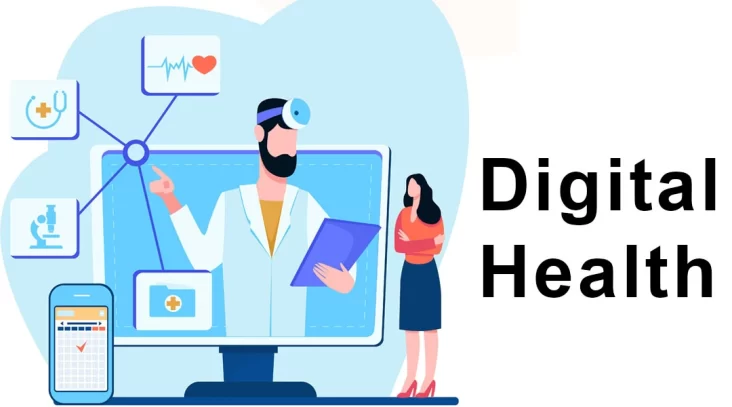The future of healthcare
Digital health is revolutionizing the healthcare industry, promising to enhance patient care, improve efficiency, and empower individuals to take charge of their health. With advancements in technology and the widespread adoption of digital tools, the future of healthcare is increasingly becoming digitized, paving the way for a more connected and personalized approach to medicine.
One of the key aspects of digital health is the use of electronic health records (EHRs) and health information technology (HIT) systems. These systems allow healthcare providers to access and share patient information seamlessly, facilitating collaboration and coordination of care across different healthcare settings. By digitizing medical records, healthcare professionals can make more informed decisions, reduce medical errors, and improve patient outcomes.
Telemedicine and telehealth services represent another significant aspect of digital health. These platforms leverage telecommunications technology to provide remote medical consultations, diagnosis, monitoring, and treatment. Telemedicine offers convenience and accessibility, particularly for individuals in remote or underserved areas who may have limited access to traditional healthcare services. Additionally, telehealth solutions have become indispensable during public health emergencies, enabling healthcare delivery while minimizing the risk of exposure to infectious diseases.
Wearable health technologies are also shaping the future of healthcare. Devices such as smartwatches, fitness trackers, and health monitoring sensors allow individuals to track their vital signs, activity levels, and health metrics in real-time. These wearable devices provide valuable insights into health and wellness, empowering users to make informed decisions about their lifestyle, diet, and exercise habits. Furthermore, wearable health technologies can facilitate remote patient monitoring, enabling healthcare providers to monitor patients’ health status outside of traditional clinical settings.
Artificial intelligence (AI) and machine learning are revolutionizing healthcare delivery by enabling data-driven insights and predictive analytics. AI algorithms can analyze vast amounts of medical data, including imaging scans, genetic information, and clinical records, to assist in diagnosis, treatment planning, and disease prediction. By leveraging AI-powered tools, healthcare providers can identify patterns, detect anomalies, and personalize treatment strategies tailored to individual patient needs.
Digital therapeutics represent a novel approach to managing chronic conditions and improving patient outcomes. These software-based interventions deliver evidence-based therapeutic interventions through digital platforms, such as mobile apps and virtual reality simulations. Digital therapeutics offer scalable and cost-effective solutions for addressing a wide range of health issues, including mental health disorders, diabetes, obesity, and cardiovascular diseases. By combining behavioural science, technology, and clinical evidence, digital therapeutics have the potential to revolutionize disease management and preventive care.
Blockchain technology is also emerging as a disruptive force in healthcare, offering secure and transparent solutions for data management and interoperability. By leveraging blockchain-based platforms, healthcare organizations can ensure the integrity, confidentiality, and accessibility of patient data while enabling secure data sharing and exchange among stakeholders. Blockchain technology has the potential to streamline administrative processes, reduce healthcare fraud, and enhance patient privacy and security.
Despite the promising potential of digital health technologies, several challenges remain, including interoperability issues, data privacy concerns, and regulatory barriers. Additionally, the digital divide and disparities in access to technology pose challenges to equitable healthcare delivery. Addressing these challenges will require collaboration among stakeholders, including policymakers, healthcare providers, technology developers, and patients, to ensure that digital health innovations benefit all individuals, regardless of socioeconomic status or geographic location.
In conclusion, digital health represents the future of healthcare, offering transformative opportunities to improve patient care, enhance efficiency, and empower individuals to achieve better health outcomes. By harnessing the power of technology, healthcare organizations can unlock new possibilities for personalized medicine, preventive care, and population health management. As digital health continues to evolve, it is essential to prioritize innovation, collaboration, and equity to realize its full potential in shaping the future of healthcare.

